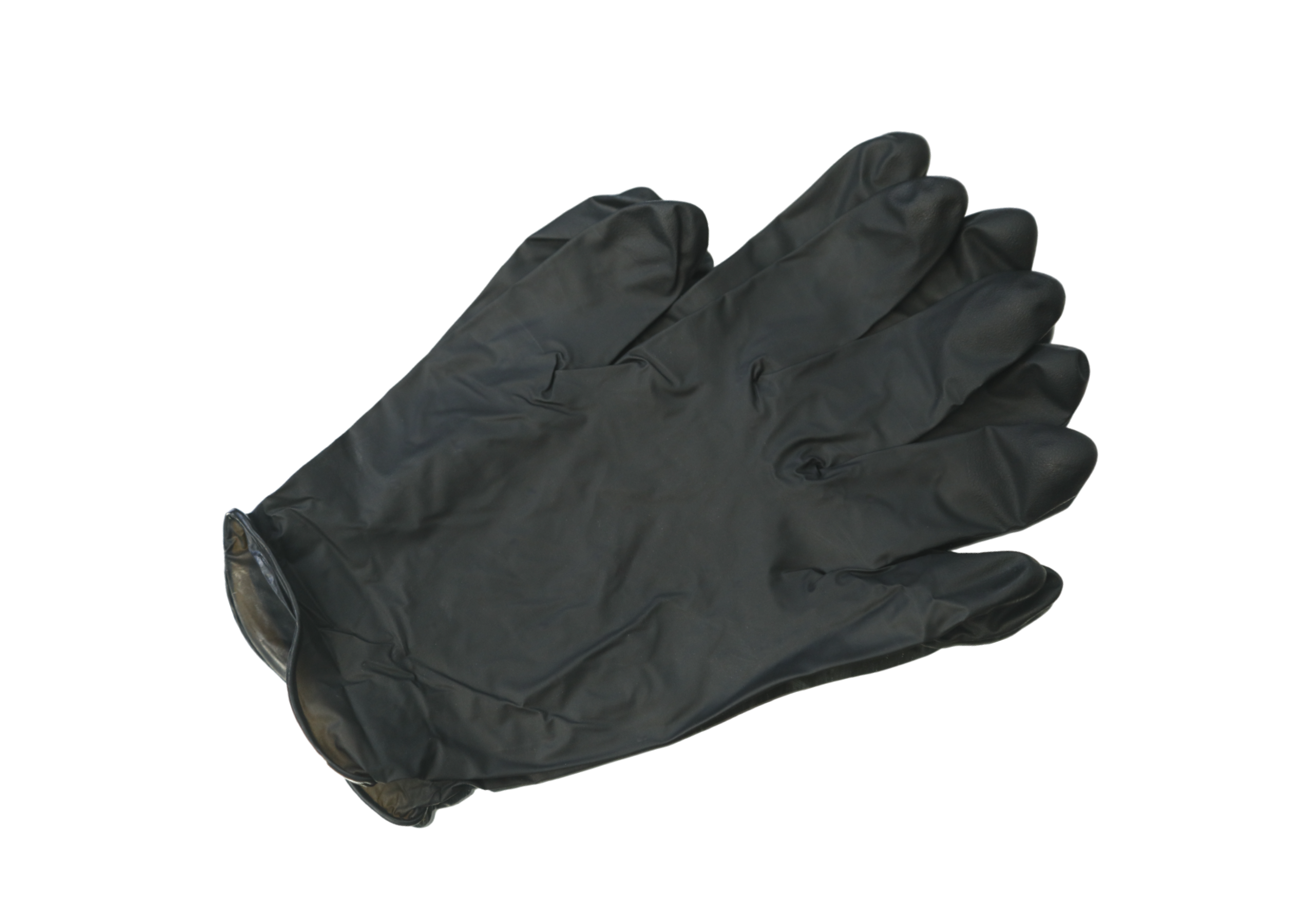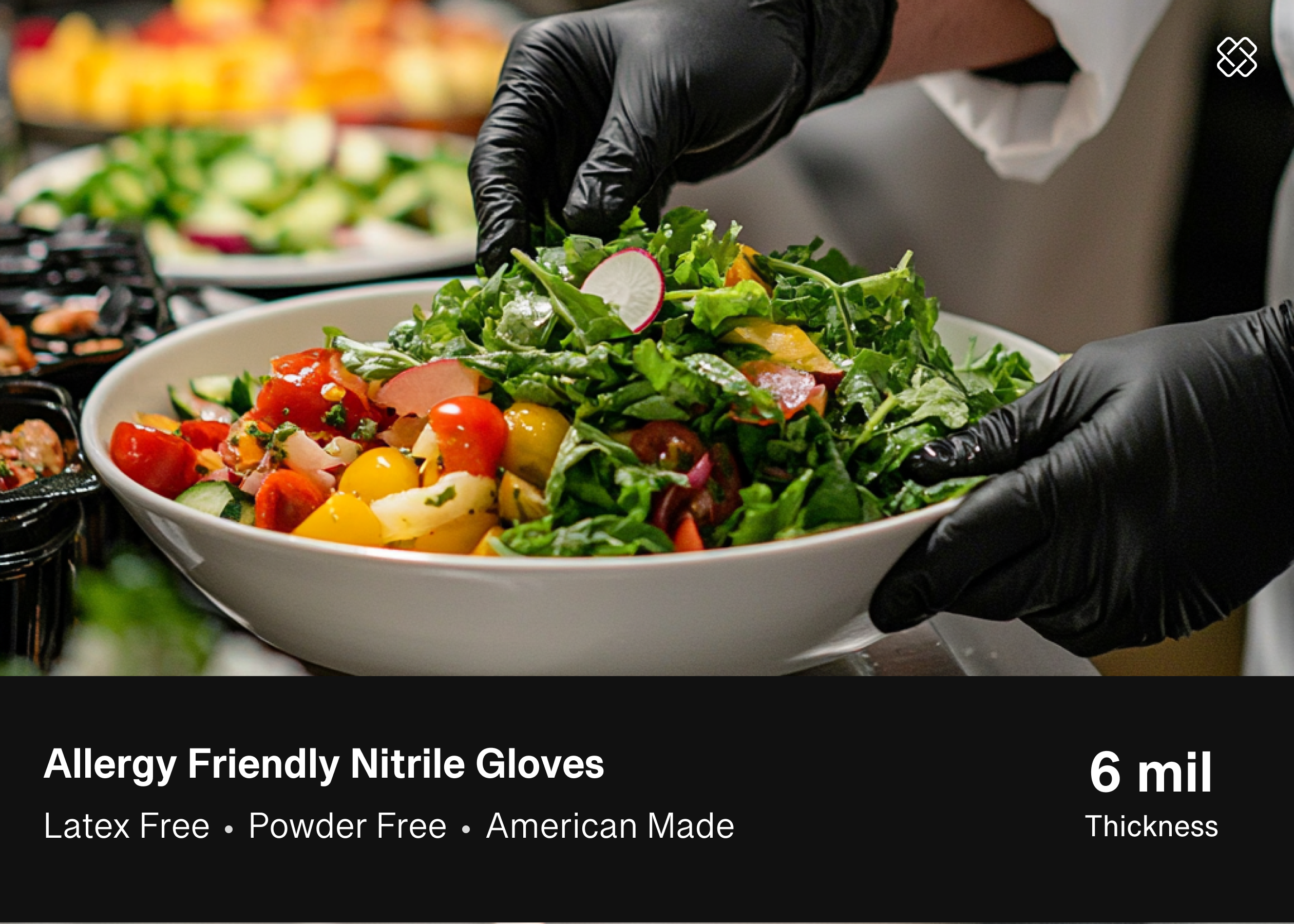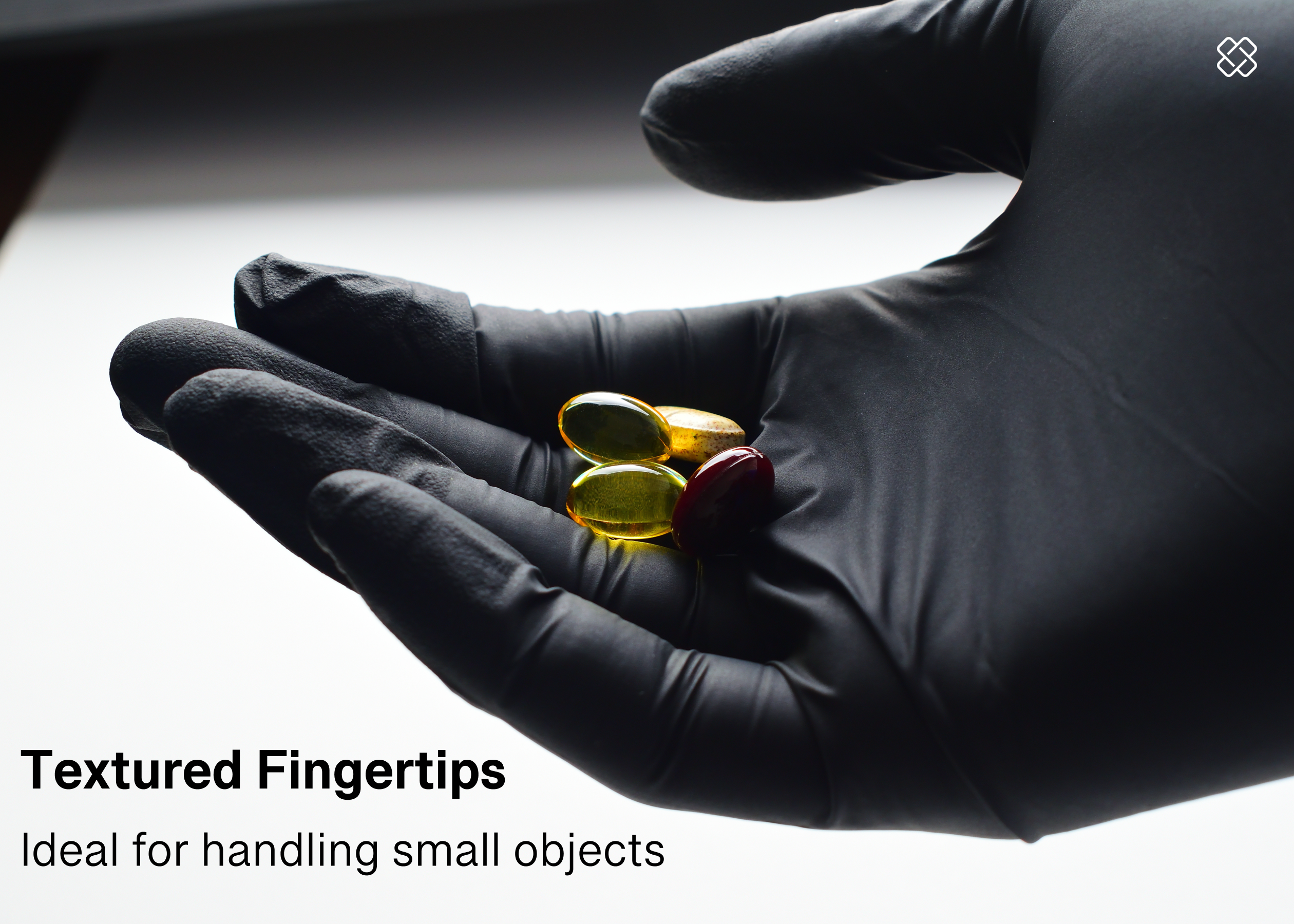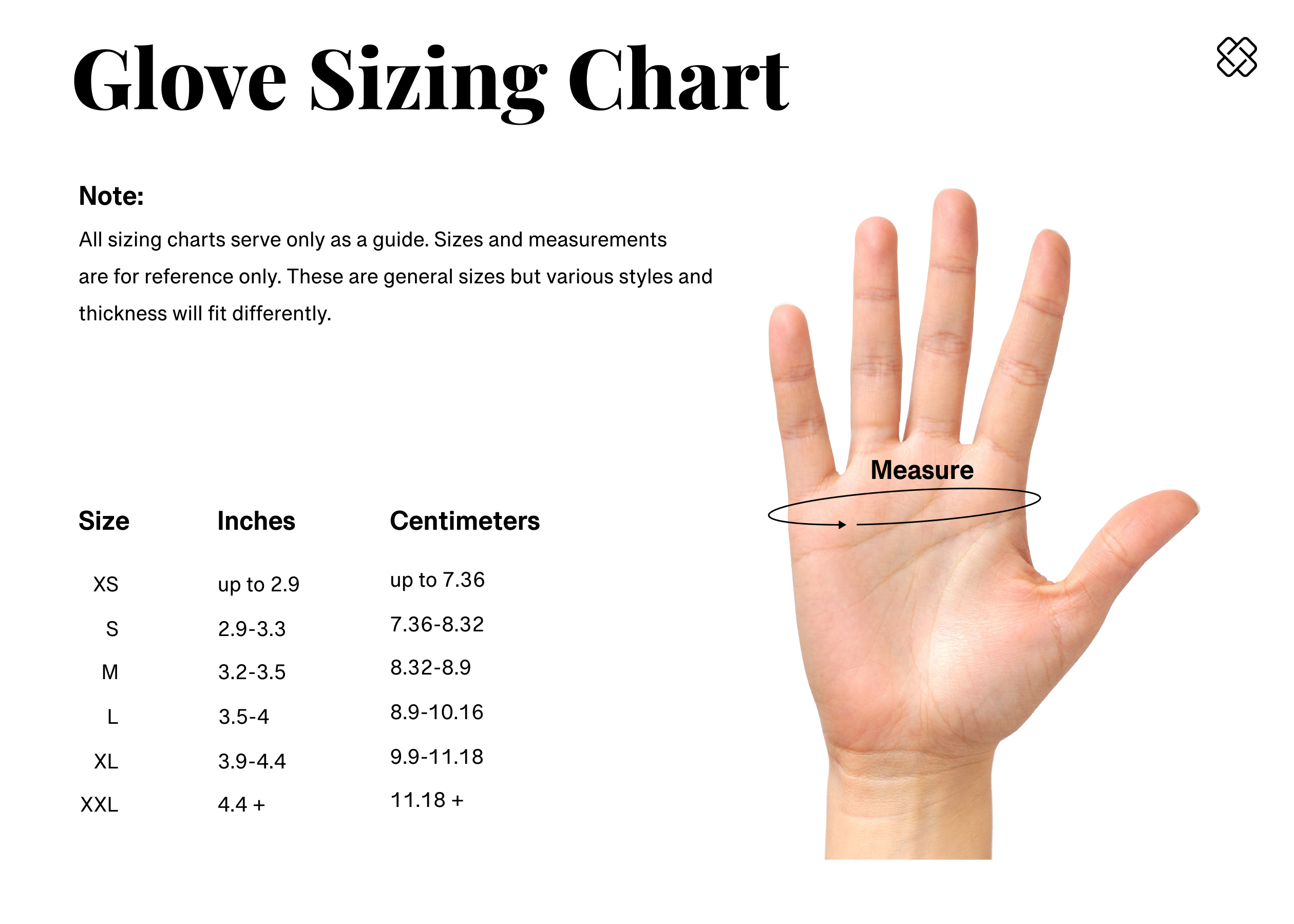





Industrial Food Grade Nitrile Gloves
Crafted from high-grade US nitrile, these Black Nitrile gloves are 6 mil, ideal for mechanics, industrial workers, and food handlers.
Engineered to resist harmful chemicals and contaminants, they provide an exceptional barrier with extreme tear resistance.
- Food compliant
- Ambidextrous
- Textured Fingertip
- Non-sterile
- Powder-free
- Not Made With Natural Rubber Latex
- Beaded cuff to increase tear resistance
- Single Use Only
- Manufactured in an FDA registered facility
- Made In America
- 10 boxes/case
- 100 gloves/box
- 90 gloves/box XX-large*
To secure your gloves as low as $6.99 a box. Order in Bulk.
Ordering Info
- Denali Black gloves come packaged
- 100 gloves/box
- 1000 gloves/case
- 60 Cases/Pallet
- Fully Customizable Configurations
Quality Standards
- FDA 510(K) Clearance
- AQL of 1.5
Size & Dimensions
Length: 240 mm
Fingertip Thickness:
Minimum 5.9 mil
Palm Thickness:
Minimum 3.5 mils
Physical Properties
Ultimate Elongation: >/= 500% before aging, >/= 400% after aging
Tensile Strength: >/=14 before aging >/=14 after aging
Choose options






Black Nitrile Gloves FAQ
Black nitrile gloves are popular in industries like automotive, manufacturing, and food service, where durability and a strong barrier against chemicals, oils, and dirt are essential.
Black gloves are favored because they hide stains from grease, oils, and other industrial substances, helping workers maintain a professional appearance.
Yes, black nitrile gloves are often food-safe and are frequently used in food handling, particularly in settings like BBQs and restaurants, due to their durability and resistance to oils.
Black nitrile gloves offer excellent chemical resistance, high puncture durability, and a sleek appearance that conceals stains, making them ideal for various industrial applications.
Mechanics prefer black gloves as they are resistant to automotive chemicals and oils. The black color also hides dirt, keeping hands looking cleaner.
Black nitrile gloves are commonly used for food handling in professional kitchens and BBQ setups, as they are generally food-safe and provide strong protection against oils and heat.
The main difference is color, with black gloves often used in settings where appearance and hiding stains are important, while blue gloves are more common in medical and food service applications
While black nitrile gloves can handle moderate heat, they are not designed for direct contact with very high temperatures. Additional thermal protection may be needed for extreme heat.
Black nitrile gloves are heat-resistant to some extent, protect against oils, and maintain a clean appearance, which makes them ideal for handling and preparing food in BBQ and kitchen environments.
For industrial applications, gloves with a thickness of 6-8 mil provide the durability needed for protection against chemicals and rough handling.
Black nitrile gloves offer resistance to many chemicals, making them suitable for handling automotive fluids, oils, and some solvents. However, always check specific chemical compatibility.
Black nitrile gloves are typically made thicker and with added durability for industrial use, which increases their cost. The black pigment also appeals to professionals who need to conceal stains.
The color often indicates the industry or application. Black gloves are common in industrial and food service settings, while blue or purple nitrile gloves are often used in medical fields.
Not necessarily. Strength depends on thickness and quality, not color, but black gloves are often manufactured for heavy-duty applications, making them appear stronger than standard blue gloves.
Nitrile gloves are generally preferred in industrial settings due to their superior resistance to chemicals, punctures, and durability compared to latex.
Black nitrile gloves are commonly used in tattooing to conceal ink stains, providing a cleaner look and ensuring that clients see a professional appearance.
Yes, as long as they are comfortable and fit well, nitrile gloves can be worn for extended periods. They are generally breathable and don’t cause allergic reactions like latex might.
While black nitrile gloves are highly durable, they may be more expensive and less tactile than thinner gloves, making them better for heavy-duty tasks than precision work.
Yes, black nitrile gloves provide a barrier against bloodborne pathogens, making them suitable for use in healthcare and industrial settings where contamination is a concern.
